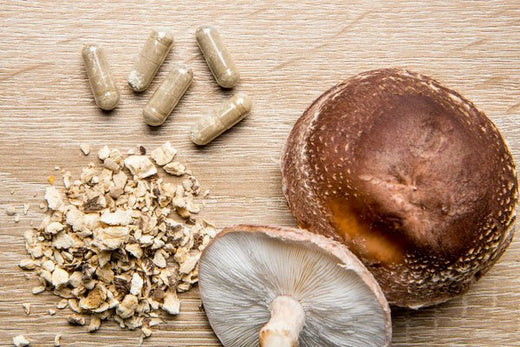Mapping Path to Wellness in 2023: Strategies for Cultivating a Vibrant Body and Mind

The feelings of stress, fatigue, or general unwellness are frustrating to handle. In our fast-paced modern society, maintaining a healthy body and mind can pose significant challenges. However, there's no need to fret because there are numerous small adjustments you can make to enhance your overall well-being and improve your lifestyle.
Undoubtedly, as multifaceted individuals, our physical and mental health are intricately interconnected. Our bodies and minds respond to various factors such as our beliefs, self-imposed limitations, anxieties, self-talk, and past traumas, triggering the activation of the nervous system and stress responses.
Moreover, there exists a mutually influential relationship between our gut microbiome, injuries, excessive exercise, inadequate diet, and insufficient sleep. This connection can lead to concerns, catastrophic thinking, mental exhaustion, impaired judgment, unhealthy eating habits, and a negative self-perception. Fortunately, the utilization of medicinal mushrooms offers a range of benefits in addressing these issues.
In this article, we will explore effective strategies for setting and achieving your goals in 2023, ultimately enabling you to lead a healthy lifestyle. Additionally, we will delve into the advantages of medicinal mushrooms and adaptogenic herbs, which play a crucial role in supporting brain health and fostering a robust digestive system. Finally, we will emphasize the importance of prioritizing your own mental wellness and overall well-being.
Table of Contents

The Significance of Goals
Goals hold immense importance as they provide us with a sense of purpose and serve as motivators for us as human beings equipped with prefrontal cortexes capable of abstract thinking, encompassing both future and past perspectives.
The act of setting objectives, regardless of their scale, is foundational in attaining a healthy lifestyle, nurturing a sound mind, and maintaining a healthy body. Goals offer us guidance, fuel our self-discipline, and often bestow deeper meaning upon our lives.
When we embark on the journey of setting goals for our mental wellness and overall well-being, it is crucial to encompass all dimensions of our existence and strive for an improved way of life. It is essential to include objectives that nourish our emotions, physical well-being, financial stability, intellectual growth, psychological health, and relationships. This comprehensive approach enables us to objectively and impartially evaluate areas where we can enhance ourselves.
Take a moment to reflect on why you aspire to achieve your goals in 2023. Consider how their accomplishment will benefit your life holistically, encompassing your past, present, and future selves. Ponder the ways in which they will contribute to leading a healthy and fulfilling lifestyle.
The lingering impact of the stress from 2020 continues to affect our mental wellness and the pursuit of a healthy lifestyle in the present year of 2023.
For many of us, the challenges of traveling, planning trips, setting objectives, and returning to our pre-COVID-19 routines are still very real. Additionally, we grapple with chronic fatigue, low energy levels, and uncertainties about the future, which further hinder our ability to achieve goals and improve our overall lifestyle.
However, the new year presents a significant opportunity to recenter ourselves, enhance our lifestyles, alleviate anxiety, and establish goals for 2023 that foster positive habits supporting both our physical and mental well-being.
In the following discussion, we will explore the SMART goals paradigm and how it can facilitate the achievement of our goals for the year while also boosting self-confidence and self-trust. By utilizing this framework, we can gain assurance that our goals are attainable and ultimately enhance our overall lifestyle. Moreover, I believe it is crucial to expand our understanding of what constitutes a goal.
While traditionally, goals tend to focus on external outcomes such as securing a new job, attaining financial objectives, or establishing romantic relationships, I propose that we also consider internal goals that are deeply personal. These internal goals may involve forgiving someone who has wronged us, avoiding workplace drama, or refraining from negative self-talk when we interact with others.
Tips for Achieving a Healthy Body and Mind
Year after year, pursuing a healthy body and mind and striving to improve our lifestyle remains a common resolution. It is well-established that nurturing our bodies indirectly enriches our minds and vice versa.
We are aware of the positive impact of sunlight on serotonin levels and mood enhancement. Exercise is widely regarded as a powerful antidepressant, and immersing ourselves in nature has been shown to shift our nervous systems into a state of relaxation, reducing inflammation.
In light of these facts, I offer the following advice: Let us incorporate more elements of what it means to be fully alive and functioning human beings into our lives in order to achieve a healthy body and mind.
In a time when our lives are increasingly dominated by technology, attention-grabbing notifications, toxic relationships, and media influence, it is crucial to prioritize living in harmony with the planet. This entails fostering deeper connections with others, spending more time outdoors and in nature, consuming more organic brain-healthy foods, exploring new territories, embracing adventure, indulging in daydreaming and creativity, incorporating regular physical movement, staying hydrated, and aligning our sleep patterns with the rising and setting of the sun.
By following these tips, you can effectively work towards achieving your goals and improving your overall lifestyle.

Building Your Confidence
Confidence is not an innate trait but rather a skill that can be cultivated and developed. While some individuals may have had their confidence reinforced through parental support or life experiences, others may have not had the same level of encouragement.
As we age, certain skills are exercised more than others, making us more proficient in those areas. However, it is important to view confidence as a skill rather than an inherent quality. In her book "Growth Mindset," Carol Dweck emphasizes that approaching learning and traits like confidence as skills, which can be honed through practice, transforms our mindset and alleviates the fear of failure.
By actively practicing and exercising confidence, we have the potential to improve it. There is a saying that goes, "Fake it until you make it," suggesting that by embodying confidence, even if we may not fully feel it at first, we can gradually internalize and enhance our self-assurance.
Having confidence means recognizing our own worth and the value of our ideas. It involves acknowledging our strengths, such as being an excellent cook, a reliable partner, and someone who takes regular supplements of medicinal mushrooms, adaptogenic herbs, and brain-healthy foods.
Our minds are intricate, and when faced with rejection, we often create narratives that lead us to believe we are inadequate, undermining our confidence. However, by viewing confidence as a skill, we realize that rejection is a universal experience and not always a reflection of our personal worth. It may simply indicate that we are not the best fit for a particular circumstance or objective. A setback does not equate to failure but rather serves as a valuable lesson.
In my role as a nutritionist, I frequently encounter individuals who lack self-assurance in practicing self-control and fall into harmful, restrictive dieting patterns due to previous failed attempts. When working with clients, we explore the reasons behind their past failures, such as the lack of balance and freedom in their approach to meals, the absence of healthy habits to support long-term success, and the presence of a toxic mindset that reinforces negative self-beliefs.
To increase your confidence, it is essential to face reality. If you consistently fall short of your ambitions, it is crucial to let go of idealistic expectations and focus on building small habits first, gradually expanding upon them. For instance, if your goal is to reduce alcohol consumption, start by aiming to limit it to twice a week. If you want to incorporate physical activity, begin with a 20-minute walk or a 30-minute workout three times a week. By setting achievable targets and consistently practicing these habits, you lay the foundation for achieving larger goals and improving your overall lifestyle.
As you accomplish your objectives and they become part of your new normal, you elevate your confidence, paving the way for a healthier lifestyle that aligns with your ideal self.

Boosting Your Activity Levels
We all recognize the importance of exercise for both our physical health and mental well-being. However, many of us struggle to get started and achieve our fitness goals.
But why is that?
As humans, impatience is ingrained in our nature. We often seek instant results and are inclined towards laziness. This inclination is what fad diets and quick-fix solutions prey upon. They promise maximum outcomes with minimal effort.
Now that we are aware of this tendency to settle for the bare minimum, it is crucial to take the following steps:
Visualize yourself engaging in activities aligned with your goals. If your aim is to lose weight, imagine yourself as the type of person who consistently works out and lifts weights four times a week, driven by the motivation to improve your lifestyle.
Determine your source of inspiration. Do you want to lose weight to feel more comfortable, confident, and attractive? Are you motivated by the desire to improve your blood markers?
Why Do You Desire It?
Now that we are aware that there is an inner desire within us, and we have a clear vision of our future selves and the reasons behind our goals, we can start incorporating activities that align with our current healthy lifestyle and be honest with ourselves.
It is important to avoid setting unrealistic expectations. For example, if you know that you thrive in group settings or with the guidance of a personal trainer or structured program, don't commit to doing home exercises alone. Recognize your personal preferences and work with them to increase your chances of success.
If you have a demanding work schedule and limited energy, opting for low-impact 30-minute workouts like walks, yoga, or pilates can be practical and fit into your daily routine. Starting small and establishing consistency is key. Make these activities non-negotiable parts of your life so that they become ingrained habits. Embrace the identity of being someone who engages in 30-minute workouts at home, goes to the gym before work, or practices yoga twice a week.
Additionally, incorporating mushroom supplements can enhance your energy levels and support your physical activity and fitness journey.

Setting SMART Goals
Setting SMART goals (Specific, Measurable, Achievable, Realistic, and Time-Oriented) is a helpful framework for developing goals and ultimately achieving them. Let's delve deeper into setting SMART goals for 2023:
Specific: Ensure your objective is clear and detailed. For example, "I will bike to work four times per week."
Measurable: Make your goal quantifiable so that you can track your progress and make necessary adjustments if needed. For instance, "I will reduce my weight from 85 kilograms to 83 kilograms within two months."
Achievable: Make a commitment to yourself and follow through with it. For example, "Before cycling on busy roads, I will practice on weekends to gain confidence. I will also join a cycling group on Facebook."
Realistic: Consider your available resources, circumstances, and time when setting your goal. For instance, "Biking to work four times a week will help me shed those extra pounds, save money on gas, boost my daily energy levels, and expand my social circle."
Time-Oriented: Set deadlines for yourself, such as "I will achieve a weight loss of 5 kilograms by March 1st."
Writing your goals for 2023 in the present tense, as if they have already been achieved, can significantly contribute to your success. This technique tricks your brain into believing that you have already accomplished them. So instead of saying "I want to be..." or "I will be..." (insert goal here), phrase your goals as "I am ______."

Sharing Your Goals with Others
To increase the likelihood of achieving your goals, consider making them public for the year 2023. When we share our goals with others, they can hold us accountable, turning our aspirations into reality.
This step can be challenging because no one enjoys the feeling of failure. However, it's important to remember that setbacks are not failures but rather opportunities to learn and overcome obstacles on the path to success.
Research has shown that when we inform others about our goals, we are more likely to accomplish them. By explaining what our goals are, why we desire them, the steps we will take to achieve them, and how we plan to address foreseeable challenges, we can boost our confidence and commitment.
Being held accountable is an effective strategy, particularly when it comes to improving our interactions with others. For instance, if our goal is to be more mindful of our words and refrain from gaslighting others, sharing this objective with trusted individuals can help keep us accountable. Others can call out our behavior and provide support as we strive to make positive changes.

Enjoying Brain Healthy Foods
Another strategy to support our goal achievement is consuming brain-healthy foods, which not only benefit our cognitive function but also contribute to overall well-being. Here is a list of brain-healthy foods and the benefits of medicinal mushrooms and adaptogenic herbs:
- Blueberries: Rich in antioxidants, blueberries protect the brain from oxidative stress and premature aging.
- Avocados: High in monounsaturated fats, avocados support brain function, lower inflammation, and aid in cell membrane health.
- Brazil nuts: These nuts are a good source of selenium, which is essential for thyroid function and nutrient delivery to the brain.
- Broccoli: Activates NRF2, a protein that helps prevent free radical damage to DNA and brain cells.
- Eggs: Eggs contain choline, a precursor to acetylcholine, a neurotransmitter important for memory and learning. They also provide coQ10, which supports brain energy production.
- Leafy greens: Rich in methyl donors, leafy greens support cell division and gene expression. They also provide B vitamins, magnesium, potassium, and vitamin C.
- Fatty fish: Omega-3 fatty acids found in fatty fish support brain health, reduce inflammation and ensure optimal cell membrane function. Examples include salmon, sardines, and herring.
- Garlic: Helps maintain a healthy gut-brain axis and provides protection against microbial and viral infections.
- Turmeric: Acts as an NRF2 activator, guarding against oxidative stress and neuronal damage.
- Cacao: Contains magnesium and antioxidants that protect the brain from oxidative stress and age-related disorders.
- Matcha green tea: Rich in antioxidants, matcha green tea supports liver and cardiovascular health. L-theanine in matcha promotes a calm mind by supporting GABA production.
- Medicinal mushrooms and adaptogenic herbs: Reishi, Cordyceps, Chaga, Astragalus root, and Ashwagandha root are examples of adaptogens that enhance stress resistance, support brain health, improve mood and energy, and strengthen the immune system. Lion's Mane mushroom, in particular, enhances cognitive function, memory, and neural health.
By incorporating these brain-healthy foods and mushroom supplements into your diet, you can optimize your mental wellness and increase your chances of achieving your goals in 2023.

Focusing On Your Digestion
Building a strong digestive system is crucial for achieving a healthy body and mind. Without proper digestion, nutrient absorption is compromised, leading to issues such as dysbiosis, systemic inflammation, low energy, and mood disturbances.
To strengthen your digestive system, practice mindful eating. This involves avoiding distractions while eating, chewing food thoroughly (around 20 times before swallowing), and refraining from drinking beverages during meals, as this can dilute stomach acid and slow down digestion.
Incorporating foods and herbs that support digestion can also be beneficial. Bitter foods play a key role in this aspect and include dandelion greens, cranberries, bitter melon, citrus fruits, artichokes, cacao nibs, and green tea.
Apple cider vinegar, with its prebiotic properties, helps maintain appropriate stomach acid levels, aiding digestion and promoting the growth of beneficial gut bacteria.
Consider trying the Medicinal Mushrooms Probiotic, which contains mushrooms like Turkey Tail, Maitake, and Shiitake. These mushrooms have benefits for the gut microbiota and possess antibacterial properties. The probiotic also includes a blend of organic millet, amaranth, and chia seeds, as well as immune- and microbial-regulating herbs like turmeric, marshmallow, licorice root, and ginger, which support a healthy and strong digestive system.
It's advisable to reduce or avoid certain foods that commonly cause gastrointestinal problems, such as wheat gluten, conventional dairy, and refined sugars.
Prioritizing Self-Care
Prioritizing self-care is vital for maintaining a healthy body and mind. Taking care of yourself allows for repair, renewal, and rejuvenation, enabling you to return to your activities with increased energy and motivation.
Rest is a crucial and beneficial activity that protects both your physical and mental well-being, promotes a healthy lifestyle, and supports digestive health. Consider getting to bed 30 minutes earlier, indulging in self-date activities, saying no to events that don't align with your needs in favor of relaxation, engaging in low-intensity 30-minute workouts, taking mental wellness days, and organizing your living space to create a positive environment.
Certain mushroom supplements can assist in promoting rest and relaxation, calming the mind, and supporting the nervous system.
Recognize the value of rest and eliminate any guilt associated with prioritizing yourself or taking downtime to recharge. Schedule regular periods of rest and make them a priority in your calendar.
Reishi mushroom is an excellent adaptogenic herb and medicinal mushroom supplement. It benefits sleep, supports the nervous system by regulating the body's stress response, and facilitates the transition to the restful state of the parasympathetic nervous system. Reishi is known for its sleep-promoting properties, anxiety reduction, antioxidant content, and historical use in longevity practices.
By focusing on digestion and prioritizing self-care, including proper rest, you can enhance your overall well-being and support the achievement of your health and lifestyle goals for 2023.
Final Thoughts
In conclusion, prioritizing both physical health and mental well-being is crucial for overall well-being. It's important to make yourself a priority and take steps to enhance your health and happiness. Incorporating medicinal mushrooms and adaptogenic herbs can be beneficial in improving your lifestyle.
Managing stress, getting enough sleep, engaging in regular exercise, and setting goals for different areas of your well-being are all valuable practices for achieving a healthy body and mind.
Remember that confidence is something you can cultivate, and regular movement and activity have positive effects on both your physical and mental health.
Setting SMART goals can help you stay focused and achieve your objectives for 2023. Sharing your goals with others, incorporating brain-healthy foods, medicinal mushrooms, and adaptogenic herbs into your diet, building a strong digestive system, and prioritizing self-care and rest are additional strategies for improving your overall well-being.
By implementing these habits into your daily routine, you can take control of your health and cultivate a happier and healthier lifestyle. Embrace change today, knowing that your mental wellness and overall well-being are worth the effort.
References
10 Tips to Improve your Mental Wellness for 2023 - https://baucemag.com/10-tips-to-improve-your-mental-wellness-for-2023/
How to Set Achieve Your Goals for 2023 - https://naturamushrooms.com/blogs/news/how-to-set-achievable-goals-in-2022
The Key to Keeping an Active and Healthy Lifestyle with a Busy Schedule - https://chopra.com/articles/the-key-to-keeping-an-active-and-healthy-lifestyle-with-a-busy-schedule
7 Trustworthy Tips on How to Stay Physically and Mentally Healthy Right Now - https://www.rtor.org/2020/06/10/7-tips-on-how-to-stay-physically-and-mentally-healthy/
Healthy Body Healthy Mind: 4 Tips for Mind-Body Balance - https://www.rtor.org/2021/05/21/happy-body-happy-mind-4-tips-for-mind-body-balance/
Written by Eliza Hedley
Eliza Hedley is an Australian-born health, mindset and abundance enthusiast obsessed with helping millennial's experience living at a higher level.
Eliza's relaxed new-age approach and understanding of nutrition and wellness see her empowering and coaching individuals to understand that their health is the ultimate asset. Upon experiencing first-hand the power and place of tonic herbalism and medicinal mushrooms benefits and adaptogenic herbs in everyday life, Eliza’s become an adaptogen fangirl and feels their utilisation in today’s world is essential for abundance and wellbeing.
Website: https://theholisticsister.com
Instagram: @theholisticsister_






